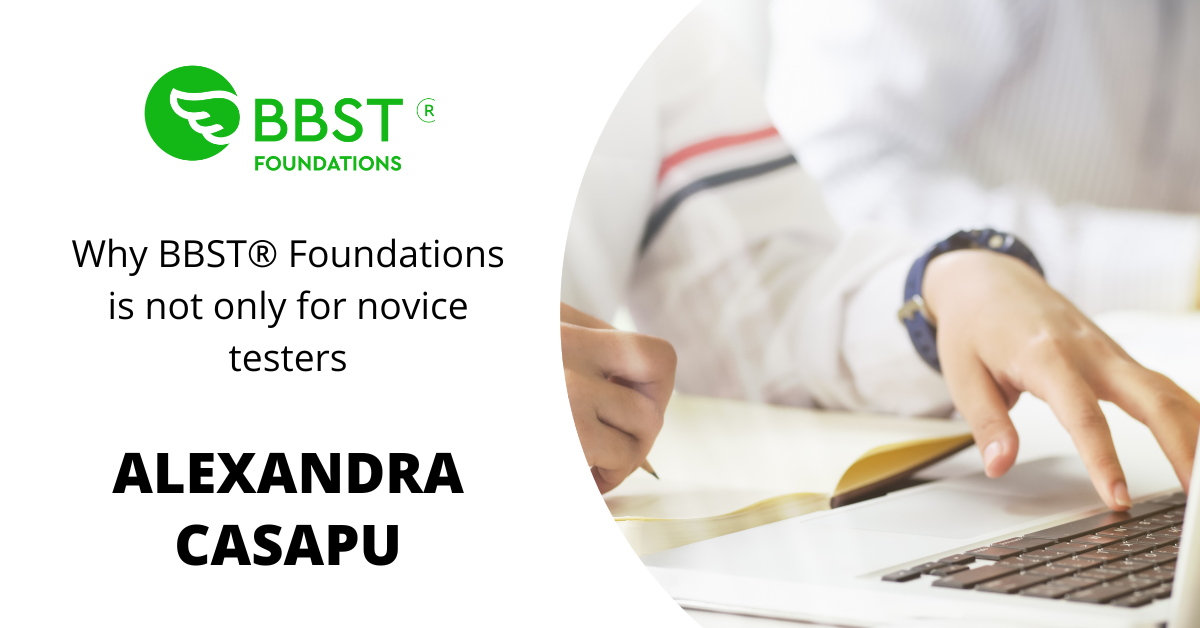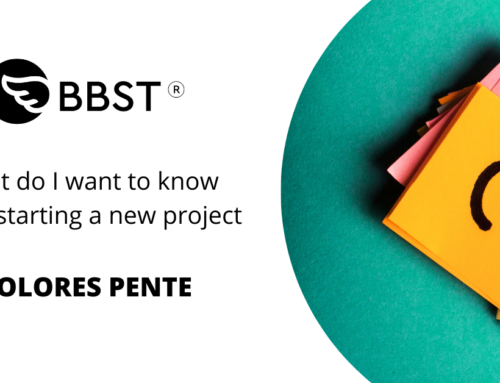The first course in the Black Box Software Testing series is called BBST® Foundations, but don’t let the title fool you: this course is not only for beginner testers. How would you, no longer a novice to software testing, benefit from taking this course? – To help you find an answer to this question, we have compiled a list – tailored for the experienced tester – of valuable takeaways from the course.
Reviewing and deepening your knowledge of the fundamentals of software testing.
BBST® Foundations is an opportunity to go over the essentials and, most importantly, a space facilitating a deeper reflection on these. How often do you stop and reflect on your testing notions and activities? What is the mission of testing? How would you define your role as a tester? What is a bug? – All these are basic, “simple” questions participants in the course are encouraged to ponder, with the ensuing discussions being wonderfully complex and enlightening.
If we were to take as reference a scientific model to describe this transition to another level of knowledge, we could invoke Anderson and Krathwohl’s revision of Bloom’s classic cognitive taxonomy. The revised taxonomy emphasizes how learning occurs over several – both knowledge and cognitive process – levels. The model includes four knowledge dimensions – factual, conceptual, procedural, metacognitive – and six cognitive processes: remember, understand, apply, analyze, evaluate, create. Anderson and Krathwohl’s model could be represented like this:
Bringing that to our context, a non-novice tester might have a factual and conceptual knowledge but still have yet to achieve procedural and metacognitive. They might remember and understand, but still have issues with apply and evaluate, or have not reached the create yet. This course can come in helpful in this process of transitioning to a superior cognitive layer. For instance, you know what heuristics are but you do not apply them in your work, or you do not come up with heuristics of your own (or you do but are not aware of that).
Preparing for the next course/s in the Black Box Software Testing series.
The BBST® series consists of three courses: Foundations, Bug Advocacy, and Test Design. Each course in the series is designed as a prerequisite for the next. Starting with Foundations, students get a grasp of the structure of the courses, and become familiar with the online platform that hosts them, Canvas. This helps with future organization and time management.
Interacting with your peers and learning from their experience.
BBST® Foundations is a course which places emphasis on practical work and on interaction. Taking part in it is a great way of reminding yourself that testing is a social activity. One of our students has pointed out in the feedback form that BBST® Foundations is an “online course more social than any regular courses I’ve ever attended”.
Students in the course are encouraged to communicate, to connect, to debate, to express their points of view, to share stories and ideas. Topics are discussed with input from both the other students and the instructors. There is so much to be learned from these daily exchanges. For instance, not once has it happened that students have found solutions to testing problems they were facing by participating in the discussions. A testing technique that you are not familiar with described in a post, or a way of organizing the test team that you have not thought of – participants often find inspiration to deal with their daily challenges in experiences described by the others. There is a great deal of learning that comes from this sharing of personal stories and experiments, with their victories and their mistakes.
Working on your review skills and on giving productive feedback.
The course offers plenty of opportunities to exercise these valuable skills: there are assignments that involve reviewing the work submitted by your peer students. Correspondingly, your work will also be reviewed, by your peers and by your instructors. This exposure to different ways of giving and receiving feedback promotes understanding and an increased awareness of the various mechanisms at play, of the dos and the don’ts. We are sure you will find these very helpful when next reviewing the performance of a colleague at work.
Developing your argumentation skills and discovering new ideas for structuring your arguments.
Besides being engaged in reviewing activities, all students are encouraged to participate in forum discussions over the various items in the course. Helpful information is gained from these exchanges. This is good practice for the discussions that will follow in the workplace, helping cement argumentation skills and providing new ideas for you to use and expand upon.
This is one of the most valuable takeaways of the course: you do not simply get to revisit concepts and exercise your skills, you will actually use what you learn in your work as a tester. You will find, for instance, you have more solid guidelines for evaluating the heuristics you use in a particular context, or for searching suitable oracles in different situations.
Taking a valuable course, highly recommended by specialists in the software testing field.
One of the content owners of the course is Cem Kaner, a noted figure in the field of software testing. Professor of Computer Sciences and Cybersecurity at the Florida Institute of Technology, Cem Kaner is also the author of some of the most insightful writings on software testing. He is senior author of the classic Testing Computer Software (with Jack Falk and Hung Quoc Nguyen), and also of Bad Software (with David Pels), and Lessons Learned in Software Testing (with James Bach and Bret Pettichord), the first self-described context-driven book.
Cem Kaner is the primary creator of the BBST® courses and the series has received much acclaim, being considered a first-rate option in terms of meaningful courses for software testers.
Software testing is about exploring, thinking critically, communicating – and a healthy dose of curiosity. There is a lot for the curious tester, whatever their level of experience, to explore in BBST® Foundations: from questions such as “what is testing?” and “how do we measure testing?”, to a diverse assortment of practical assignments, to a multitude of – more or less divergent – points of view on the various aspects of testing. Sometimes there is no need for an additional reason: a tester might simply indulge their curiosity, follow the spirit of exploration and take the class 🙂
Discussions
Share your take on the subject or leave your questions below.








